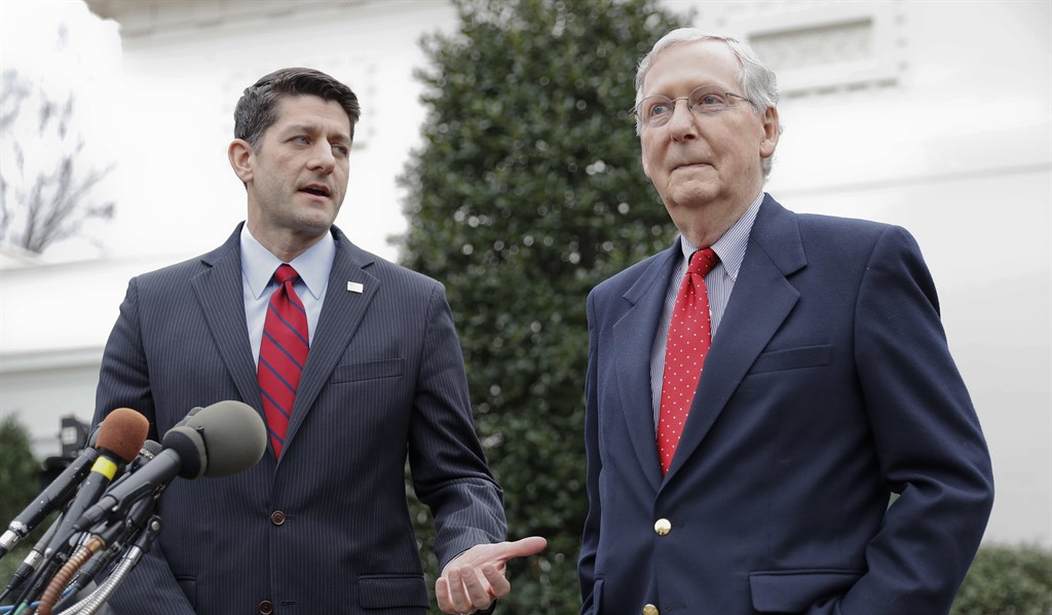I don’t know that there’s anything to add to what Jay Cost said: “We have squandered the greatest civic legacy in the history of the world.”
There are various gruesome numbers in this Annenberg survey of Americans’ constitutional literacy but none top the data below, touching on a subject that’s typically covered on day one of second grade. I’m titling this graph, “I Wish I Was Dead.”

That’s nearly three-quarters of the American population that can’t cough up “legislative, executive, judicial” on demand and fully 60 percent that can’t name *more than one* of those. I wish Annenberg had listed which branch was the one most commonly named. I’d bet it was the executive. We’ve had two mega-watt celebrity presidents in a row and a “cult of the presidency” encouraging executive power at the expense of the legislature for decades. Imagine how surprised some Americans must be to realize that the president’s technically not in charge of the entire government.
Note the trendline. If the last graph didn’t kill you, this table will:

That’s a suspiciously steep drop in basic civics among the population in a short period of time. Just four years ago 56 percent could name two branches of government, at least. Four years later just 39 percent can. I want to chalk that up to statistical noise but in both 2012 and 2013 you had 50+ percent capable of naming two and in 2014, 2015, and 2016 just 43 percent or fewer. Something does seem to have changed, but what? Is it a function of protracted gridlock in Congress, maybe? It was easy for Americans to name the executive and legislative circa 2012 because Congress’s travails in passing ObamaCare had dominated the news for months a few years before. Since the GOP took back the Senate in 2014, though, virtually nothing’s gotten done apart from splashy executive actions by Obama and Trump. Some poorly educated Americans may have literally forgotten that Congress exists.
But wait, this civic travesty isn’t over:
Nearly half of those surveyed (48 percent) say that freedom of speech is a right guaranteed by the First Amendment. But, unprompted, 37 percent could not name any First Amendment rights. And far fewer people could name the other First Amendment rights: 15 percent of respondents say freedom of religion; 14 percent say freedom of the press; 10 percent say the right of assembly; and only 3 percent say the right to petition the government…
Contrary to the First Amendment, 39 percent of Americans support allowing Congress to stop the news media from reporting on any issue of national security without government approval. That was essentially unchanged from last year. But the survey, which followed a year of attacks on the news media, found less opposition to prior restraint (49 percent) than in 2016 (55 percent).
So a little more than a third can’t name a single First Amendment right and around the same number think prior restraint of news outlets is copacetic to go with the 33 percent who can’t name a single branch of government. Some sizable minority of the population appears to have no farking idea what’s going on with its own government or the foundational rules it lives under. (Another 53 percent believe that illegal immigrants have no rights under the U.S. Constitution.) I understand why literacy tests to vote are unacceptable, but maybe it’s time for a “name one basic fact about the federal government that the average six-year-old can name” test. Although I think a Twitter pal had a persuasive theory for why that kind of test would never be tolerated — it’s not that it places the poor and less educated at a special disadvantage, it’s that naturalized citizens who actually need to know this stuff to qualify to vote would ace it while many natural-born imbeciles would fail dismally. The sheer public embarrassment would quickly lead to the test being scrapped.
There’s some good news, though. When asked if atheists have the same basic rights as other Americans, 79 percent said yes. When asked if Muslims do, 76 said so. Special thanks to the not quite four in five Americans who believe people shouldn’t suffer legal disabilities for having the wrong religion, or no religion.








Join the conversation as a VIP Member